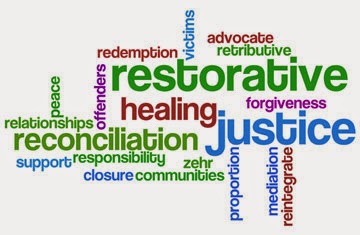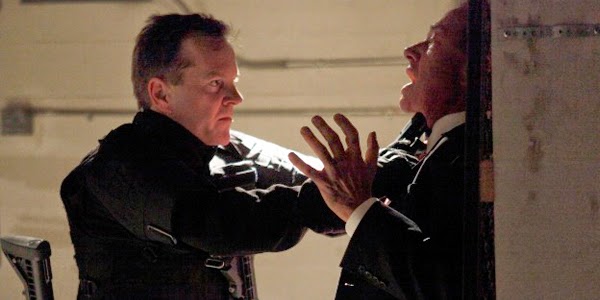In this extremely visual age, I had the recent opportunity to simply listen to a story of justice through the medium of radio documentary. I had the privilege of reviewing for UOW's RadioDoc Review, a documentary produced by BBC Radio 4 in the UK, and I was amazed at my own response to not only the transformative effect of a burglar meeting his victim, but also to the way the radio medium so piqued my attention and provoked emotion. Reproduced below is a small extract from my review...
Stories of justice as presented in media
reports play an important role in provoking responses to issues such as ethics,
crime, punishment and social responsibility. With the punishment of criminal
activity frequently attracting public attention and media reporting on
sentencing contributing to an increasingly punitive public (Gelb 2008), it is
rare to be invited to think differently about how ‘justice’ might be
achieved (whether for the victim or the offender). And yet, this is exactly
what A Different Kind of Justice does. To listen to this documentary
produced by Russell Finch for BBC Radio 4, is to take part in a review of one’s own perspective
on what should be the purpose of ‘justice’. It is a
challenge to extend what might ordinarily be our primary natural desire for
offenders to be punished, into a connected desire for the restoration of
relationships and healed lives.
A Different
Kind of Justice, narrated by dialogue expert Karl James, explores the
impact of a restorative justice program from a deeply empirical perspective. In
interviewing, and then facilitating discussion between a burglar and his
victim, James provides an exquisitely emotional look into the cathartic and potentially
transformative impact of one particular restorative justice encounter in Blackburn,
UK. A Different Kind of Justice, uses
three distinct movements to re-tell a crime story by weaving together victim
and offender perspectives, and in the process reveals not only the profound
transformative effects of restorative justice on those participants, but also
the impact it can have on the listener.
 With recent studies suggesting that
meetings between victims of crime and their perpetrators can both reduce
reoffending rates and provide pyschological healing for victims (Bolitho et al,
2012), there has been a significant increase of these ‘restorative justice’
meetings in the UK. In this program, the story is narratively crafted using the
interweaving of articulated memories – both Margaret (the victim) and Ian (the offender)
describe their memories of the crime and their subsequent ‘restorative
interaction’. It is in hearing these descriptions of juxtaposed and personalized
memories that the listener is keenly aware of the raw emotion constituting this
crime narrative. But, what is the particular story that has seemingly entwined
their lives? As described in the Somethin’ Else Program Information, the essence of their story is this:
With recent studies suggesting that
meetings between victims of crime and their perpetrators can both reduce
reoffending rates and provide pyschological healing for victims (Bolitho et al,
2012), there has been a significant increase of these ‘restorative justice’
meetings in the UK. In this program, the story is narratively crafted using the
interweaving of articulated memories – both Margaret (the victim) and Ian (the offender)
describe their memories of the crime and their subsequent ‘restorative
interaction’. It is in hearing these descriptions of juxtaposed and personalized
memories that the listener is keenly aware of the raw emotion constituting this
crime narrative. But, what is the particular story that has seemingly entwined
their lives? As described in the Somethin’ Else Program Information, the essence of their story is this:
In November 2008, Margaret interrupted a
burglary in her own home. As she came through the backdoor, the burglar left
through the front. He had taken a laptop full of photos commemorating her
daughter Jessica's 18th birthday. Eight months later her daughter was killed in
a tragic car accident. The theft of the laptop meant her parents were deprived
of any recent family photos of their daughter. …. inspired by the memory of her
daughter, Margaret agreed to meet the offender in a restorative justice
conference in Preston Prison. Ian was that burglar.
However, this is more than just a
narrative of burglar meets victim. It becomes a gripping, metaphorical looking
glass through which we can explore the practical realities of restorative
justice, and the listener quickly realizes that this is a story of restoration,
forgiveness, guilt, and burden. It is indeed a story of a different kind of
justice.
To read my full review at RadioDoc Review click here.
I encourage you to listen to the documentary for yourself - which you can do by clicking here and scrolling to the very end (after all the comments) to listen via soundcloud.







